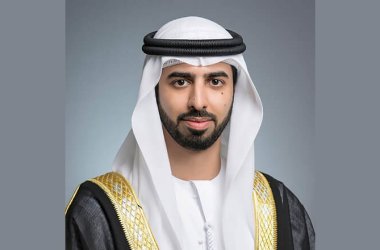A recent survey commissioned by Seamless Middle East 2017 revealed that 48 percent of GCC residents prefer to shop online, with 33 percent of respondents stating that online shopping is just as safe as offline shopping.
The Arab Federation for e-Commerce (AFEC) revealed last month that the region’s current share of the e-commerce market only represents one percent of the global market; however, the survey results highlight the increasing opportunity for e-commerce in the region.
His Excellency Dr. Eng. Ali Al Khouri, First Deputy Chairman of the Arab E-commerce Union, and Chairman for the Supreme Committee, said, “The existing appetite for online shopping in the Middle East poses a promising opportunity for international and regional investors in the e-commerce sector. The Arab Federation of e-commerce will play a central role in supporting and advising the public and private sectors in the Arab states to ensure continuous growth and further development of e-commerce in the region, as we strive to capture a fair share of the global digital industry.”
The study also noted that despite the willingness of GCC residents to fully embrace e-commerce, 34 percent of respondents claimed that a lack of confidence in payment security deters them from shopping online.
Furthermore, 29 percent of UAE respondents still feel that offline shopping is more secure, with only 31 percent considering online shopping equally as safe.
Amna Lootah, assistant director general, Finance and Commercial, Dubai Airport Freezone Authority (DAFZA), said, “At DAFZA, we provide vibrant support to businesses across all sectors operating within the Freezone, including the necessary support system for the e-commerce sector, which is now booming due to the growing popularity of online shopping in Dubai, the UAE, the entire region, and the rest of the world. This also complements the Dubai Plan 2021 to become a leading smart city and to diversify the economy. We will continuously work to contribute to the local sector’s strength to ensure that it keeps pace with the ever-evolving international developments and trends.”
The survey was conducted by YouGov in March 2017, with over 2,700 participants from across the GCC including the United Arab Emirates, Kingdom of Saudi Arabia, Oman, Bahrain, Kuwait and Qatar.
Joseph Ridley, general manager, Seamless Middle East, Terrapinn, said, “E-commerce is a hot topic globally and key players in the industry are showing increased interest in the Middle East – the Souq.com acquisition by Amazon is a prime example. Seamless Middle East provides a platform for e-commerce, payments and retail industry professionals to explore the potential of the market through knowledge sharing, as well as showcasing new products and technologies to key stakeholders within the region.”
Seamless Middle East builds on 18 years of experience and will return 1st to 2nd May 2017 at the Dubai International Convention and Exhibition Centre. The conference, to be held under the patronage of Lieutenant General His Highness Sheikh Saif Bin Zayed Al Nahyan, Deputy Prime Minister and Minister of Interior, is the largest in the Middle East, bringing together 10,000 attendees as well as 350 exhibitors from the world’s leading technology and solution providers from across the payments, e-commerce and retail industries.





